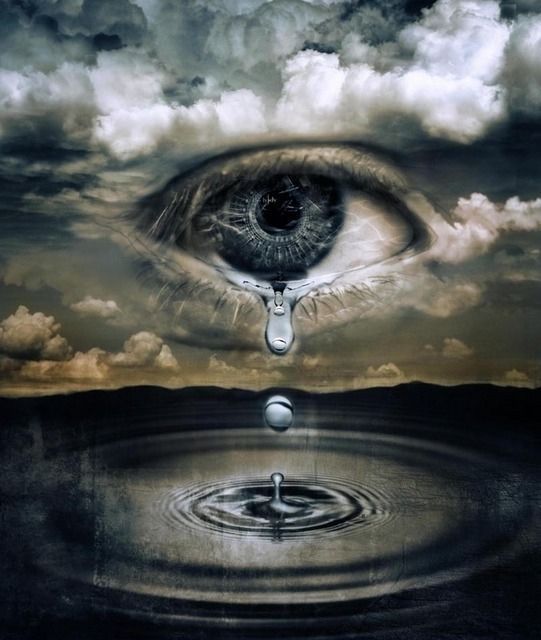We are taught from a very early age that crying is not good for us. As we were growing up, adults would say, “Stop crying,” “Don’t cry” or ask, “Why are you crying?” We were conditioned to believe that something was wrong with us if we felt the urge to cry.
For professionals, crying is forbidden in the workplace. It is perceived as a sign of weakness, or showing a lack of maturity. Yet, seeing someone get teary eyed, or wipe tears from their eyes shows emotion. Seeing adults shed a tear means that they are feeling something.
Growing up, we cried because we were physically hurt (like falling off a bike and scraping our knees) or something bad happened to us (like getting spanked or reprimanded) or we were upset about something (like we didn’t make the final cut in a competition).
As it turns out, crying is good for us. Crying relieves tension, reduces stress and has been postulated to remove chemicals that build up during stress from the body. It helps us to feel better. In a way, crying cleanses our psyche.
William H. Frey II, PhD., a biochemist and tear expert as well as founder and director of the Alzheimer’s Research Center at Regions Hospital in St. Paul, Minnesota, studied crying. His early research was published in the seminal book, Crying: The Mystery of Tears. Here’s what he found: For those participating in his research, 85% of women and 73% of men reported feeling better after crying. For each tiny drop, a tear is quite complex. Frey found that human emotional tears contain three things:
1) Leucine-enkephalin, an endorphin that reduces pain and elevates mood;
2) Adrenocorticotropic hormone (ACTH), a hormone that is elevated in the blood during stress; and
3) Prolactin, a hormone that regulates both mammal milk production and the development and function of our tear glands. Although we may not know definitively why human beings possess the ability to shed tears in response to emotional stress, it is likely they help reduce the harmful effects of stress on our bodies.
The next time you feel like crying, just sit down with a big box of tissues and have that good cry. The release of toxins will lift your emotional state. It will also make you more pleasant to work with!
If you encounter someone crying in the workplace, here are a few tips to guide your behavior:
Don’t judge. We are often quick to judge another person’s behavior, especially when it is deemed out of the norm. We are not mind readers. We don’t know what a person has experienced in the past or even today. Sometimes an emotion is triggered through a tone in someone’s voice, a look, or specific language. When that emotion is tapped, crying can result. You may be showing a photograph of your beautiful baby girl to a group of co-workers and not know that one of them (who begins welling up with tears) has been trying unsuccessfully to conceive for the past few years. Try to remain open minded rather than judgmental.
Don’t reprimand. When someone begins crying in the workplace, don’t become the parent and tell that person not to cry. And definitely don’t scold her or him by saying, “It’s very unprofessional to cry. Pull yourself together!!” Rather, find a quiet spot if you’re not already in one. Sit with the person for a while and offer comfort. Open with a statement like, “You appear to be upset about something” or “It seems that something I have said has upset you.” Begin a conversation.
Listen and Learn. People can often hold in feelings and then let them come out all at once, sometimes with tears. This happened to me more than 20 years ago when a staff member came into my office, closed the door, began crying, and said, “I just don’t know what you want me to do.” It seemed that I was being more of a controlling perfectionist than I had realized. Her outburst helped me to see things from her perspective. At once, I understood how she felt. As her boss, I felt good knowing that she confided in me at a very personal level. Our working relationship, and our communication, opened up from that moment.
Recommend. If the person is repeatedly breaking down at work, it may be time to recommend outside help through counseling or a physician’s visit. The persistent crying could be a sign of more serious mental or emotional distress which may require medical attention.
If you are on the receiving end of someone’s tears in the workplace, make yourself fully available to be a comforting, consoling adult. Don’t judge. Don’t reprimand. Listen and learn. Recommend. Your attention will help more than you know.

